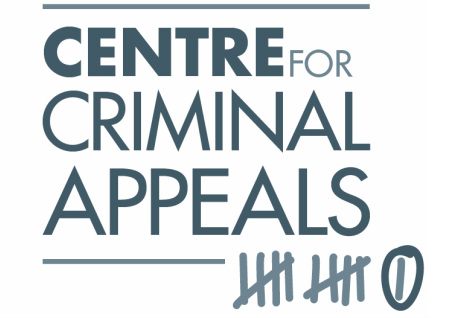Develop Robust Evidence Base
University of Oxford, Faculty of Law


Access to Civil Justice Research Project
Grant: £197,515
November 30, 2016
This is a three year post-doctoral research fellowship, providing an opportunity for an exceptional candidate to conduct research on the theme of access to justice in England and Wales, based at the new Bonavero Institute for Human Rights in the Faculty of Law at the University of Oxford.
A primary goal of the Institute will be to develop a cohort of scholars and practitioners highly skilled in human rights law. In seeking to establish a fellowship in access to civil justice, the Institute recognises the urgent need for outstanding research in the field of access to civil justice in order to inform policy-making in this field. Another goal of the Institute is to foster collaboration between scholars and practitioners in the field of human rights. Access to civil justice is a field that will particularly benefit from such collaboration.
This project has two goals:
- to foster world-class research by an outstanding post-doctoral fellow;
- and to enable the post-doctoral fellow to pursue a scholarly career focussed on issues relating to access to civil justice in England and Wales.
| Increase Public Understanding | Advance High Quality Thinking | Increase Access to Employment |
| People Working in the Law | ||
| Implications of Brexit | Legal Needs in Healthcare Settings | Influence the Online Court |
| Develop Robust Evidence Base | ||
| Understand Role of Technology | ||
| Law Reform, Policy and Regulation | ||
| Communications to Disseminate Learning | ||
Mental Welfare Commission for Scotland


Patients' Rights Care Pathway
Grant: £15,000
November 9, 2016
Individuals admitted to hospital with a mental illness, informally or detained, are often unaware of their human rights and rights under mental health law. An infographic patients’ rights care pathway for adult acute psychiatric care is being developed. A report evaluating this and highlighting good practice using the pathway will be published. This will support staff to recognise critical points to ensure patients are informed about and afforded specific rights.
Consultation involving service users, carers and staff has provided a wealth of information to help formulate a pathway identifying key rights from admission to discharge.
This funding is to produce short videos to promote systems and behavioural change in acute wards. The videos will be widely available via the Mental Welfare Commission for Scotland website and partner organisations. Mental Welfare Commission for Scotland will also promote their use direct to staff during their regular visits to acute wards across Scotland.
| Increase Public Understanding | Advance High Quality Thinking | Increase Access to Employment |
| Staff in Voluntary Sector | ||
| Implications of Brexit | Legal Needs in Healthcare Settings | Influence the Online Court |
| Develop Robust Evidence Base | ||
| Understand Role of Technology | ||
| Law Reform, Policy and Regulation | ||
| Communications to Disseminate Learning | ||
University of Leicester


Law in Children’s Lives: Secondary analysis
Grant: £19,297
July 6, 2016
This project undertakes secondary analysis of data gathered as part of the research project “Law in Children’s Lives” which used a tablet based game to explore the legal understanding of children aged 8-11 years.
This project follows on from an 18 month study, Law in Children’s Lives (LICL) funded by the Economic and Social Research Council (ESRC) under its transformative research grant scheme. In this study we worked with children to develop a tablet-based game, Adventures with Lex which we then used as a research tool to assess the legal understanding of children aged 8-11 years and to find out in particular how far, if at all, these children perceive themselves to be empowered by law in their everyday lives.
| Increase Public Understanding | Advance High Quality Thinking | Increase Access to Employment |
| Young People | ||
| Implications of Brexit | Legal Needs in Healthcare Settings | Influence the Online Court |
| Develop Robust Evidence Base | ||
| Understand Role of Technology | ||
| Law Reform, Policy and Regulation | ||
| Communications to Disseminate Learning | ||
Centre for Criminal Appeals


Problem Solving Advocacy in the Criminal Justice System - Scoping Exercise
Grant: £5,600
June 22, 2016
| Increase Public Understanding | Advance High Quality Thinking | Increase Access to Employment |
| People Working in the Law | ||
| Implications of Brexit | Legal Needs in Healthcare Settings | Influence the Online Court |
| Develop Robust Evidence Base | ||
| Understand Role of Technology | ||
| Law Reform, Policy and Regulation | ||
| Communications to Disseminate Learning | ||
Pascoe Pleasence Limited


Exploring Legal Capability: Proposal for Further Development and Analysis
Grant: £15,000
June 22, 2016
This is for additional analysis of data being collected as part of the ongoing TLEF funded 'Development of Standardised Inventories of Legal Capability' project. That project involves the conduct of two national probability surveys, data from which is being used to develop standardised measures of legal confidence and (separately) attitude to law, production of guidance for using the measures and production of ‘baseline’ legal confidence and attitude estimates.
This new ‘extension’ proposal looks to harness additional opportunities presented by the second survey of the current project. Specifically, it is proposed that the hitherto separately conceived legal confidence and attitudes to law data captured by the second survey be brought together, along with a small amount of additional data relating to legal capability (to be added at the conclusion of the second survey design phase), to form the basis of a much broader based statistical analysis of drivers of, and links between, legal confidence, attitudes to law, wider legal capability, and broader demographic factors (similar in form to that set out in the “How People Understand and Interact with the Law” report (published on TLEF's website).
| Increase Public Understanding | Advance High Quality Thinking | Increase Access to Employment |
| General Public | ||
| Implications of Brexit | Legal Needs in Healthcare Settings | Influence the Online Court |
| Develop Robust Evidence Base | ||
| Understand Role of Technology | ||
| Law Reform, Policy and Regulation | ||
| Communications to Disseminate Learning | ||
UCL Centre for Access to Justice


Guttmann Health - Justice Partnership Project
Grant: £46,479
March 31, 2016
The project is a Health-Justice partnership between UCL Centre for Access to Justice and the Guttmann Health and Well-Being Centre in Stratford. It provides on-site free legal advice by supervised law students to patients through GP social prescription referrals or as drop-in clients. The project’s vision is to make a positive impact on the resolution of legal problems, the health and well-being of patients, health service use, future advice-seeking behaviour and legal education. The project could be scaled-up, providing a prototype for law schools and advice agencies around the UK.
Building on UCL’s access to justice research expertise, and facilitated by the partnership with clinicians, rigorous evaluation of the impact of the service is fundamental to the project. Robust impact evidence will be valuable to commissioners of integrated primary care services aimed at reducing health inequalities and improving community health and well-being. UCL Laws has made a significant long-term investment in employing qualified lawyers and an empirical legal researcher to launch this project.
| Increase Public Understanding | Advance High Quality Thinking | Increase Access to Employment |
| People Working in the Law | ||
| Implications of Brexit | Legal Needs in Healthcare Settings | Influence the Online Court |
| Develop Robust Evidence Base | ||
| Understand Role of Technology | ||
| Law Reform, Policy and Regulation | ||
| Communications to Disseminate Learning | ||
Pascoe Pleasence Limited


Development of standardised inventories of Legal Capability (field work)
Grant: £64,505
November 10, 2015
| Increase Public Understanding | Advance High Quality Thinking | Increase Access to Employment |
| Related Research | ||
| Implications of Brexit | Legal Needs in Healthcare Settings | Influence the Online Court |
| Develop Robust Evidence Base | ||
| Understand Role of Technology | ||
| Law Reform, Policy and Regulation | ||
| Communications to Disseminate Learning | ||
National Council for Voluntary Organisations (NCVO)


Voluntary Sector Legal Information Audit
Grant: £12,950
November 10, 2015
The overall aim of this project is to create a record of the areas and topics where voluntary sector organisations require legal information and to audit where such information currently exists and where the gaps fall. We will cover the full lifecycle of a voluntary organisation from set up, to running the organisation, to winding up.
There is a current lack of coordination of up to date and reliable content in some topic areas as well as a complete absence of material in others. The focus will be on the availability of free legal information.
The long term intention is to use the Voluntary Sector Legal Information Audit to inform the creation of a coordinated online information resource for the sector and our members, in collaboration with other providers. The online resource will provide or signpost voluntary sector organisations to the up to date legal information they need. It will also draw on any partner resources and initiatives, where appropriate. At this stage anticipated partners for the next stage of this project will include BWB LLP, Small Charities Coalition and LawWorks.
| Increase Public Understanding | Advance High Quality Thinking | Increase Access to Employment |
| Staff in Voluntary Sector | ||
| Implications of Brexit | Legal Needs in Healthcare Settings | Influence the Online Court |
| Develop Robust Evidence Base | ||
| Understand Role of Technology | ||
| Law Reform, Policy and Regulation | ||
| Communications to Disseminate Learning | ||
Pascoe Pleasence Limited


Development of standardised inventories of legal capability
Grant: £45,000
July 1, 2015
The project aims to arrive at a standardized tool for evaluating legal confidence which can be used to measure the legal confidence of individuals. In order to arrive at this standardized tool, a technique called factor analysis is used.
Factor analysis allows researchers to investigate concepts that are not easily measured directly by collapsing a large number of variables into a few interpretable underlying factors. Factor analysis has been used to arrive at a standardised test for complex concepts such as @ldquo;socio-economic status” or differential diagnosis of psychological conditions. Researchers collect a series of questions that relate to concepts that they believe to be associated with the phenomenon they are attempting to measure (for example, in the case of “socio-economic status” these might include questions about “income”, “education”, “house value”, “number of crimes per year in neighbourhood”). These questions are put to a large sample of individuals, the results collected, and the researcher examines the data to see if there are any patterns in the data which would indicate that the answers given to the questions that have been asked are related to an underlying phenomenon that is not being directly measured by the questions. For example, in the case of socio-economic status, researchers observed patterns in responses given to questions about income, employment, and level of education. Statistical techniques are then applied in order to work out which of the question responses are most likely to account for changes in the phenomenon that is not being directly measured (e.g. in the case of “individual socio-economic status”, (the underlying non directly measured phenomenon), difference in responses to questions about income level account for more change in socio-economic status than level of education). In order to be sure that the questions posed accurately predict the presence of the underlying concept across the population as a whole (and not just within a particular sub-group) they should be put to a group of people who are as representative of the wider population as possible. The best way to guarantee this is to pose these questions to a representative, random probability sample. In order to arrive at a tool for that is not overly long or onerous, the exercise must be repeated, this enables the researcher to refine and reduce the list of questions that are relevant to assessing the underlying concept.
It must be noted that this is an experimental project. Standardised tools for measuring concepts such as “legal confidence” have not been developed before. It may be that the questions that are posed do not reveal patterns in the data that indicate an underlying phenomenon that we might define as “legal confidence”. This is an unlikely but possible outcome that should be borne in mind when considering the level of funding that should be dedicated to this project.
| Increase Public Understanding | Advance High Quality Thinking | Increase Access to Employment |
| Related Research | ||
| Implications of Brexit | Legal Needs in Healthcare Settings | Influence the Online Court |
| Develop Robust Evidence Base | ||
| Understand Role of Technology | ||
| Law Reform, Policy and Regulation | ||
| Communications to Disseminate Learning | ||
Youth Access


PLE programme with young people
Grant: £79,585
November 26, 2014
| Increase Public Understanding | Advance High Quality Thinking | Increase Access to Employment |
| Related Research | ||
| Implications of Brexit | Legal Needs in Healthcare Settings | Influence the Online Court |
| Develop Robust Evidence Base | ||
| Understand Role of Technology | ||
| Law Reform, Policy and Regulation | ||
| Communications to Disseminate Learning | ||
Select by Objective
Select by Theme
Select by Tool
Select by Grantee
Grantees
Select by Date
Grants Archive
Search
